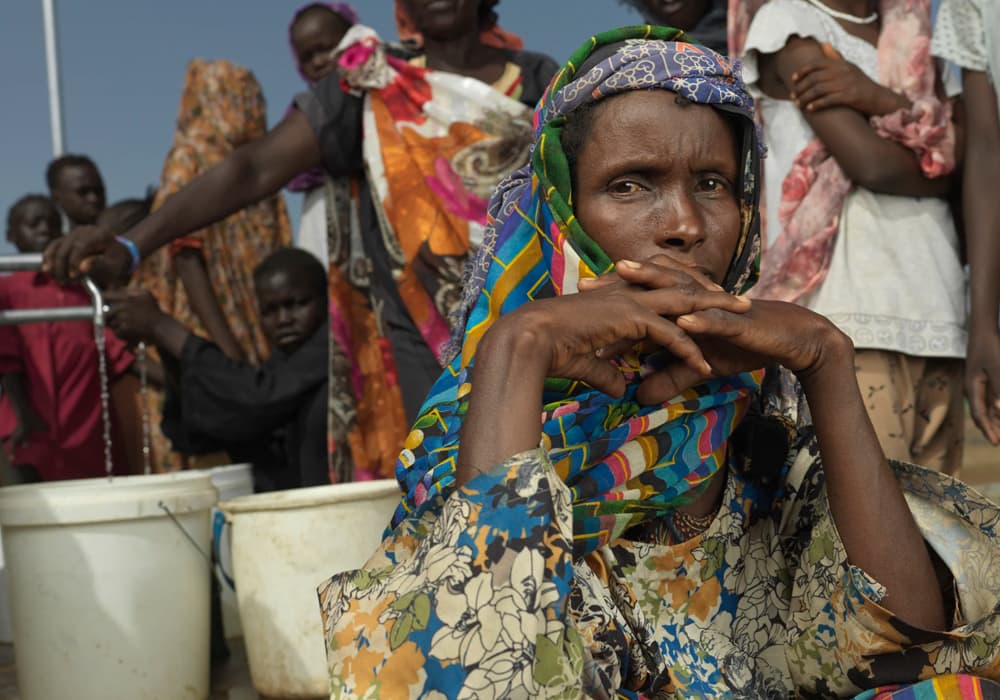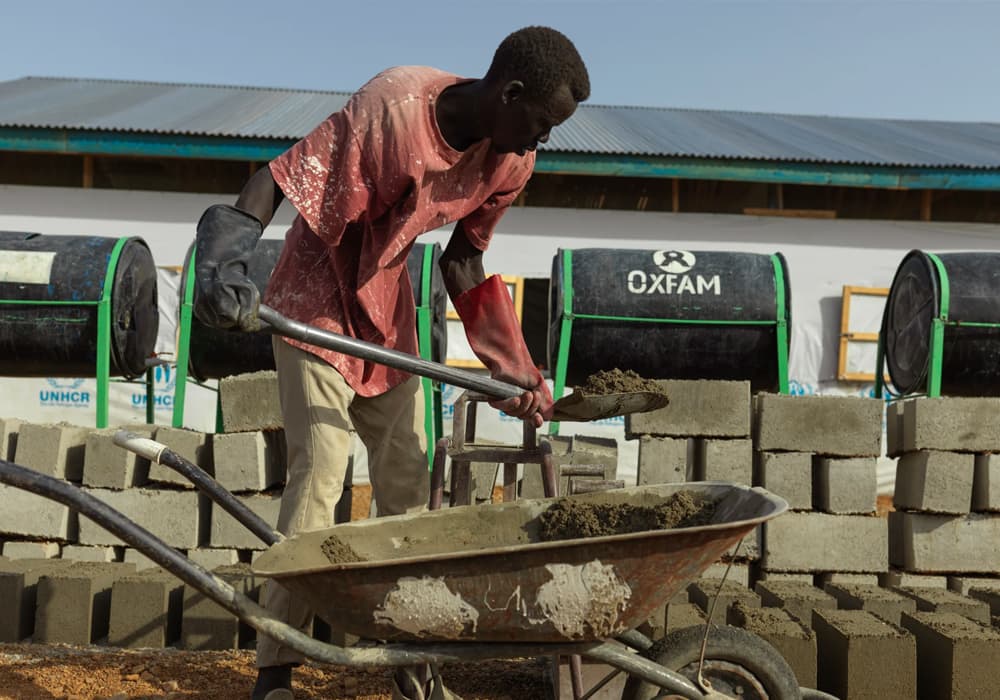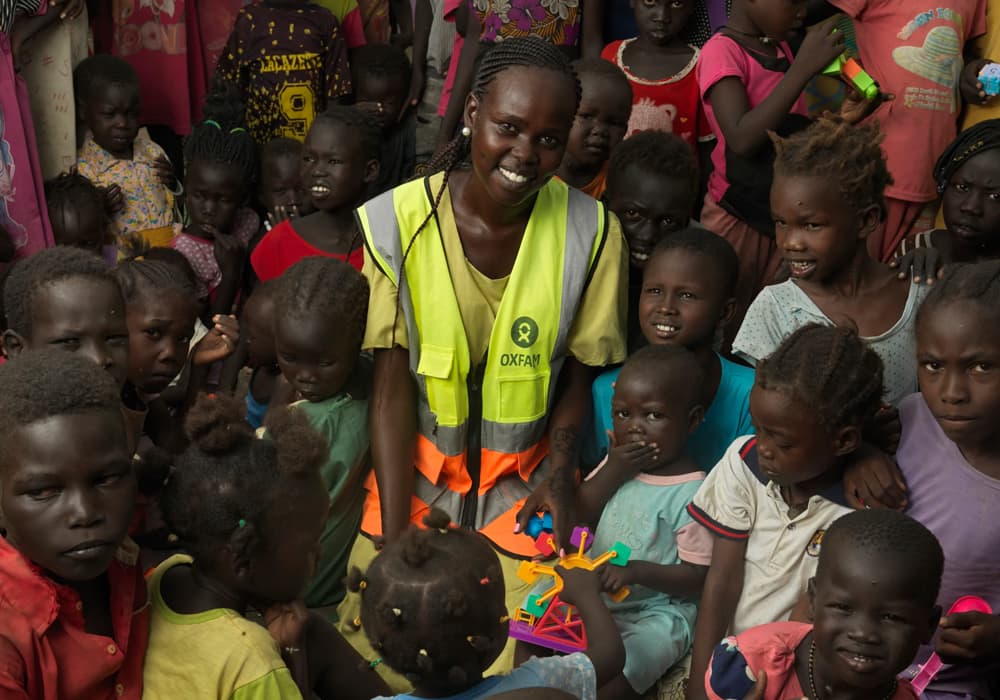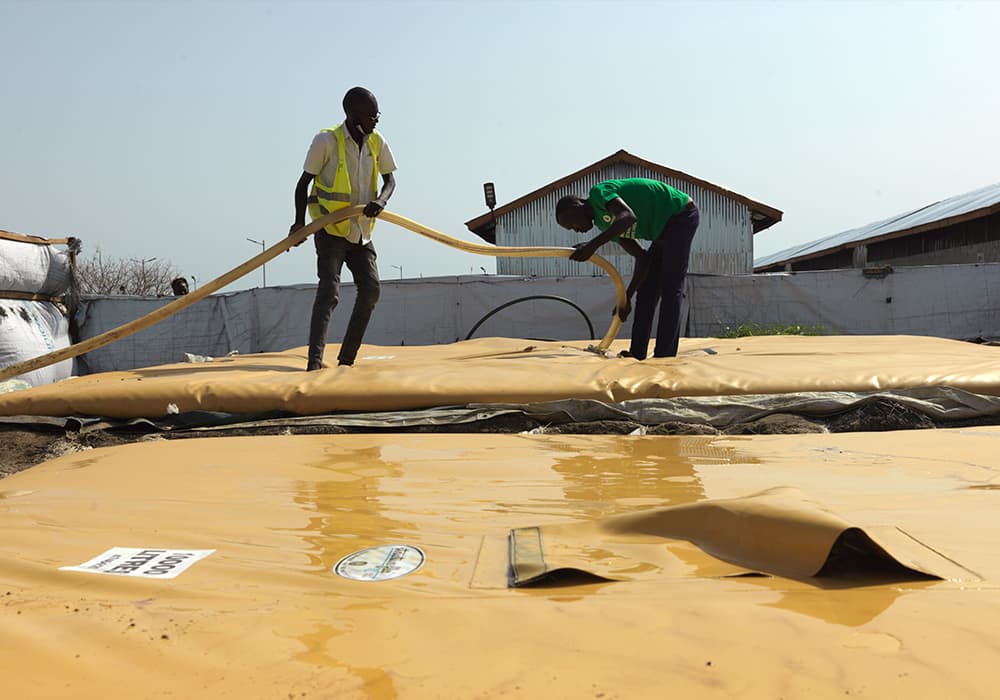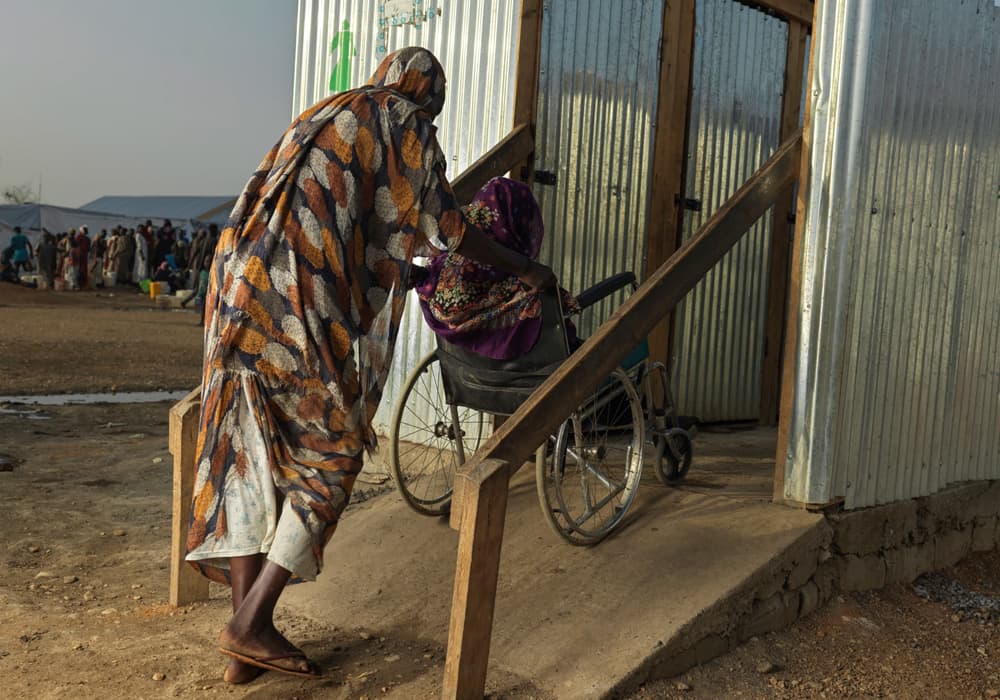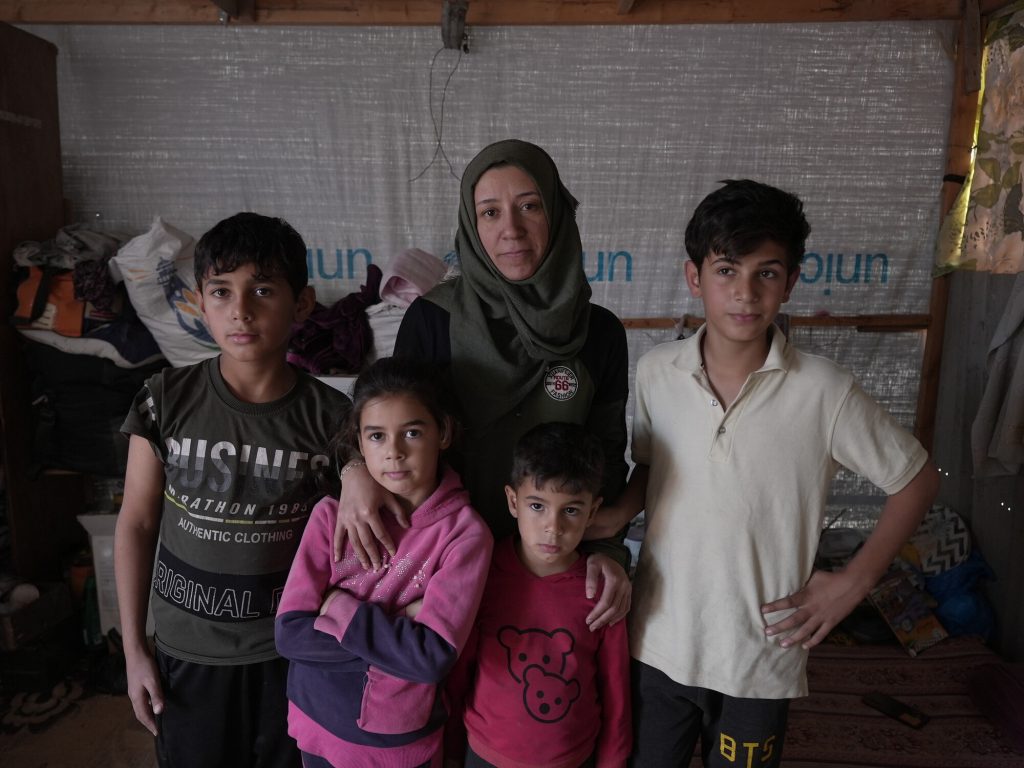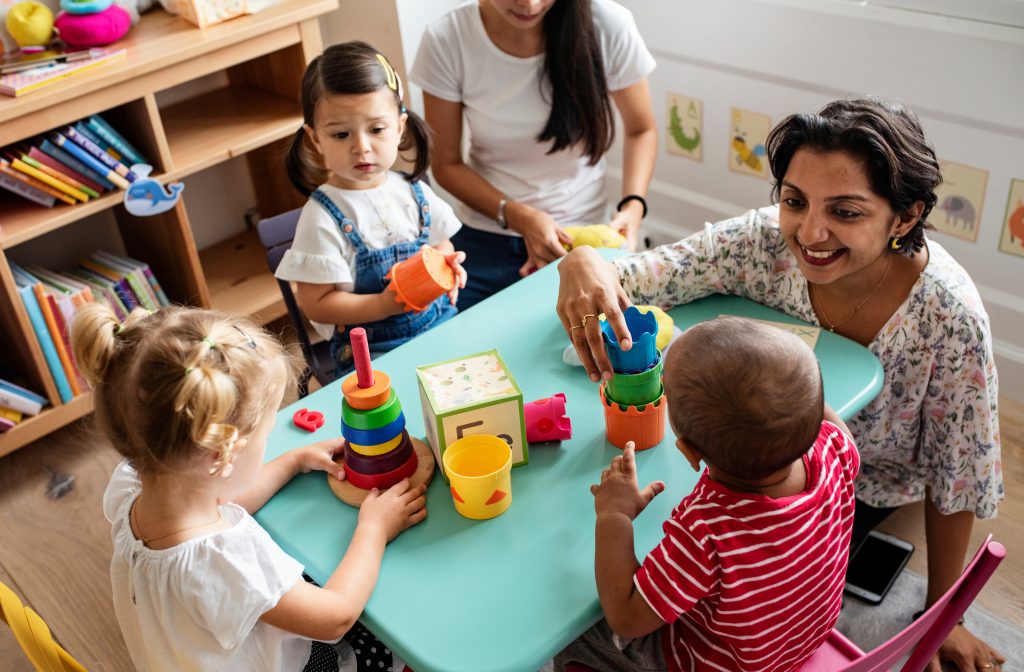Escaping War: The Journey of Sudan Refugees to South Sudan
The war in Sudan has forced millions to flee, creating the world's biggest displacement crisis and worsening food insecurity in Sudan and the central and eastern African region. An estimated 7.3 million people are displaced within Sudan, and over two million have crossed into Chad, South Sudan, Ethiopia, and the Central African Republic.
While Oxfam is not operational in Sudan, it supports refugees and returnees in South Sudan and Chad. In Renk, South Sudan, Oxfam provides clean water and cash assistance to over 90,000 refugees and returnees at transit centers. The situation in South Sudan is already dire, with over 7 million people facing severe hunger. In Renk, we spoke to refugees and returnees about how their lives have changed, the challenges they face, and their hopes for returning home.
Fleeing the brutal Sudan War
Photo: Peter Caton/Oxfam
Khamis Adam Mohammed
“In the past two days since I arrived in Renk, I have not seen men with guns, and my heart is finally relaxed,” says Khamis Adam Mohammed.
The ongoing civil war in Sudan now raging over a year of fighting, has displaced more than 8.6 million people. Over two million people have fled to neighboring countries such as Egypt, Chad, South Sudan, and Ethiopia. Khamis is one of the many refugees who has crossed Sudan's border into South Sudan, he tells us his story.
Khamis is a Sudanese man, he is happily married with three children. Before the war started in April 2023, Khamis enjoyed life as a fisherman selling his daily catch at the local market.
His wife was taking care of the family at home, and his children attended school. A year before the war, Khamis fell into a river severely breaking his hip. Financially he was not in a position to seek treatment.
With the aid of a wooden staff, he managed to walk minimal steps with a broken hip. Khamis was no longer physically fit to fish or work. The family’s income dropped significantly. For financial reasons, the situation took a toll on his children.
"My children used to go to school. Once I had my accident, nobody could support them. My children had to drop out of school,” says Khamis. His wife started a small vegetable shop at the market where he once sold fish.
The civil war in Sudan between the Sudanese armed forces and the Rapid Support Forces (RSF), caught up to Khamis’ remote village in early February 2024.
“During the war in Sudan, we would hide under our beds. If you lift your head from under the bed, a bullet may hit you, so you have to remain under your bed. From morning till evening, there would be bullets. Sometimes, the fighting would move to another area for a few days and then come back. Starting all over again! We had to live under our beds again,” reflects Khamis.
After three months of intense fighting, a bullet struck his neighbour's house forcing Khamis to decide it was time to get his family to safety. It took my family around twenty days to plan a safe route to enter South Sudan.
Due to financial restrictions, Khamis’s wife went ahead of him with their two children, “I told my wife and two children to proceed without me,” says Khamis who was left behind with his six-year-old daughter Habiba.
Khamis had to protect his beloved daughter Habiba at all costs, even though they were vulnerable to his physical limitations. “My daughter feared a lot. I tried to support her emotionally; I would hold her tight and tell her not to worry. I would say, don’t fear. We will be traveling soon,” says Khamis.
The bond between the two is apparent. Khamis would die for his daughter. He often took his daughter to the mosque to find time for prayer to help ease her mind. Both of them were supported by their community.
“When we would go to the mosque, people with also very little would help out and I was able to get my daughter to join our family in South Sudan,” says Khamis Two months later after the separation from his family, Khamis raised enough money to join his wife and children.
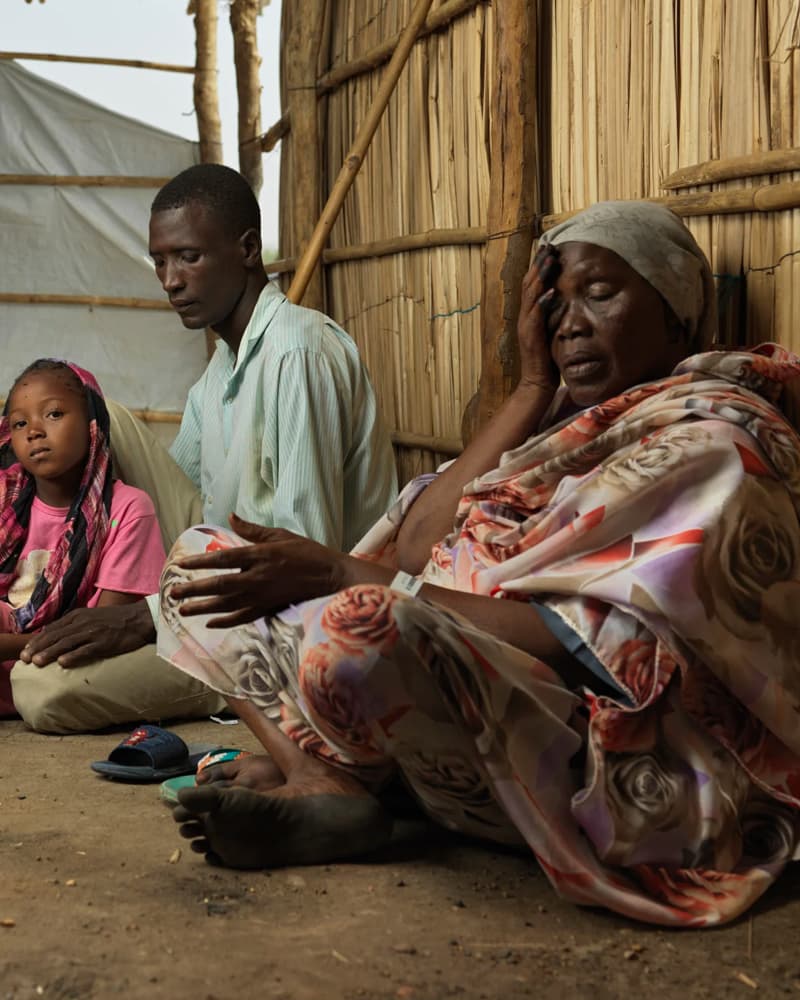
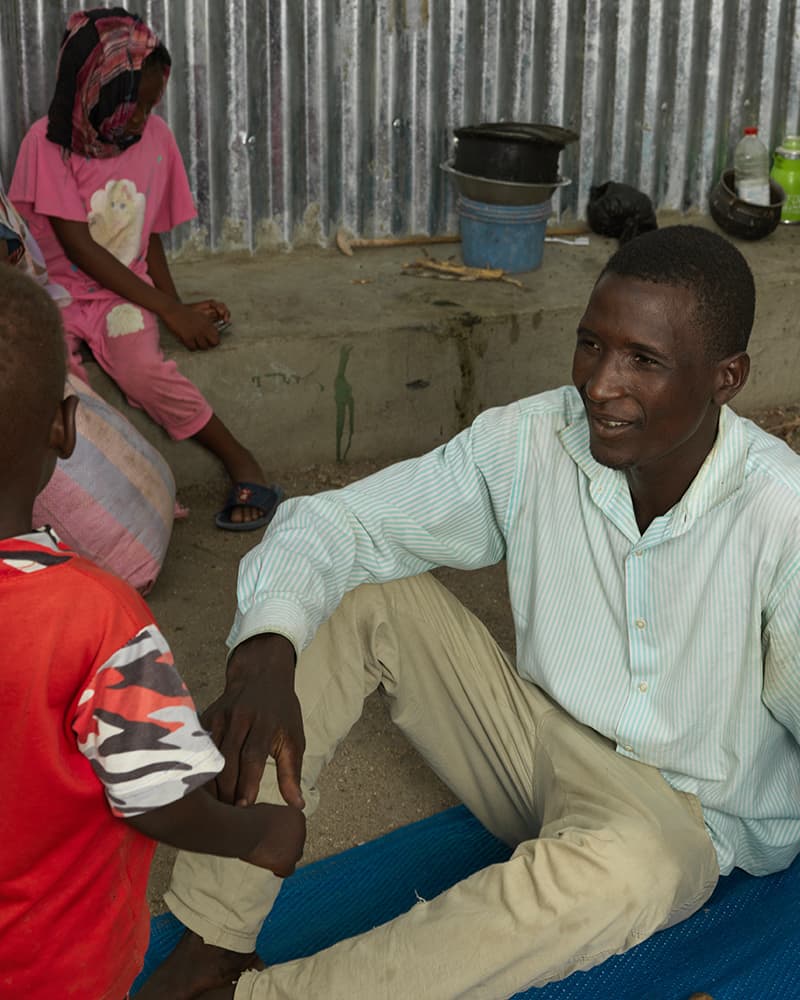
The owners of the shops allowed us to sleep close by for our safety. It was risky but government soldiers were nearby so we were protected,” remarks Khamis, before adding: “On the last bus, I was happy as I knew I would meet my wife and my remaining children who left with her.”
Through the kindness of others Khamis and his daughter made it to South Sudan, The journey to meet his family’s warm embrace took three days, two buses and a lorry. “On the road, we slept near shops.
The family reunited at a transit center in Renk. “I feel happy reuniting with my family, we feel safe here. We do not hear guns firing anymore, so we are relieved. My hope for the future while I am here in Renk is for my family to live in safety,” says Khamis.
The family plans on remaining at the transit center until the war ends. However, there are no signs of the war stopping. For Khamis, a ceasefire is not close in sight. “Once people start killing, there will always be revenge, so the war will not end anytime soon. People have revenge in their heart,” adds Khamis. When the civil war ends, Khamis hopes to return to Sudan with his family and rebuild his life
Twice displaced by War- Achol hopes for peace for her children
Photo: Peter Caton/Oxfam
Achol Ring Tong
Achol Ring Tong, is on the run from violence for a second time in her twenty-one years of life. On the 31st of May, 2024, she entered South Sudan through the Joda border entry point with her daughter and 21-day newborn.
That day Achol replaced her title as a refugee living in Sudan to a South Sudanese returnee displaced in her homeland. Soon, she will take a bus to a transit center in Renk where she will wait for her husband to join her in South Sudan.
Achol grew up in a village located in the oil-rich Abyei region. Abyei is positioned on the border of South Sudan and Sudan. The two countries jointly administer Abyei, claiming dual ownership of the region.
Achol enjoyed her life as a young woman living on the South Sudanese side of the region raising her daughter with her husband who was a baker. “When we lived in South Sudan, life was good back then,” recalls Achol. However, the dual ownership of land has created tension in the region dating to 2011 when South Sudan gained independence leading to conflict.
On February 10, 2022, an attack broke out in Abyei that spiraled into bloody tribal conflict between the Twic Dinka militias against the Ngok Dinka militias.
“The situation became dangerous in Abyei. My husband and I both lost family members during the war. My uncle and his children were killed. My husband's cousins were all killed. There wasn’t enough food or water for everyone. We ran to Sudan in 2022 for our survival,” says Achol.
The family settled in Khartoum, Sudan’s capital, where they were welcomed by her husband’s remaining relatives who helped the family settle into their new metropolis lives.
“Living in Khartoum was exciting! The buildings and the cars were all exciting. The city was shining with nice cars. I prefer Khartoum to the village, it was the best life,” reminisces Achol.
Achol found work as a house cleaner while her husband worked as a security guard. The family adjusted well to urban living and started to find joy in their day-to-day lives again until, April 15, 2023 when fighting erupted in Khartoum. A power struggle between the Sudanese armed forces and the Rapid Support Forces (RSF) turned into a gruesome civil war.
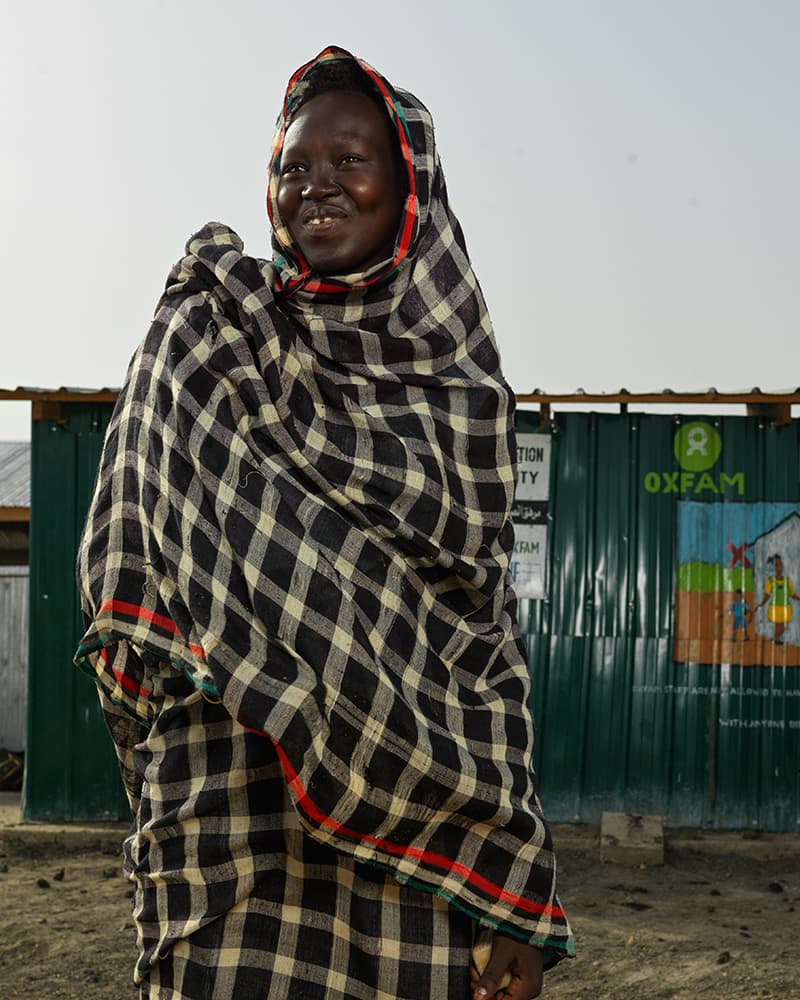
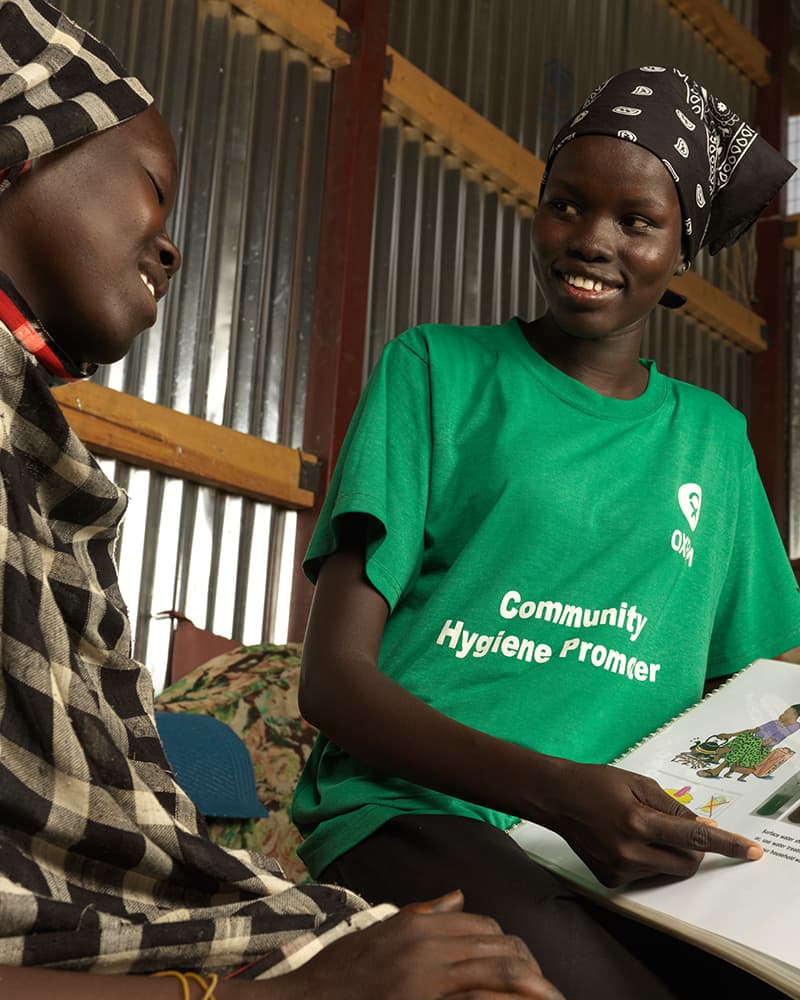
After a year of peace, another war was on Achol’s front doorstep. “I experienced many more deaths in Sudan,” claims Achol. Violence and hunger drove Achol’s family outside the capital city. “It looked really bad in Khartoum when I left.
“Things became very expensive in Khartoum. Suddenly there was no food, electricity, or water. When the war started, we had stored a small amount of food. When the food ran out we left the city and went to a small town to hideout,” says Achol.
The family moved to a remote area, expecting their conditions to improve. Unfortunately, the war still devastated the area with shortages of food and water. Days of happiness were few. Despite the stress from the war, Achol found out she was pregnant with her second child.
She had to stay on and following the birth of her child, her husband urged her to leave Sudan for safety. “He said, go first and I will follow, when we are together, we will make a decision on our future,” says Achol sorrowfully.
Hope through songs for Sudan refugees seeking refuge in South Sudan
Photo: Peter Caton/Oxfam
Zainab Alzaki Mohammed
“War can displace people whether we like it or not, but we must be safe,” says 24-year-old Zainab Alzaki, her face etched with grief.
Zainab once lived a comfortable life in Khartoum, the bustling capital city of Sudan, with her husband and two sons. Her immediate relatives also reside in the heart of the city, where they all share close bonds through regular family gatherings.
Her husband Mohammed, owned a popular chicken restaurant while Zainab focused on raising their two children at home. Her sons loved attending school to get an education and her eldest son enjoyed playing sports with his friends. All of this changed on the 15th of April, 2023, when the civil war in Sudan broke out.
Zainab’s personal experience with the raging war began on the 15th of April. The fighting between rival armed factions started in the capital city of Khartoum, Zainab and her family were in the epicenter of all the bloodshed.
“Our house was in the middle of the city and everything started there. When it started, people fought against each other with guns and bombs, and I saw people dying outside my home and in the neighborhood. It was very hard and distressing to see people losing their lives,” expresses Zainab.
Months into the war, Zainab found out she was pregnant. She was worried about having to lose her child from all the emotional turmoil of the fighting in Khartoum. At night time, the family slept under their beds for their security
“Every night for fifteen minutes, we heard jet fighters fly overhead and drop bombs. For our safety, we continued to sleep under our beds because we were afraid of what might happen” recalls Zeinab
Faced with an impossible choice, Zainab had to make the tough decision of leaving her husband and eldest child behind, she escaped to neighboring South Sudan. Zainab had little choice but to escape to live another day, leaving Khartoum behind.
For Zainab and her youngest son, Renk was their destination. “Traveling was very difficult; I was pregnant and could not run. Fortunately, a vehicle helped some of the way by giving me a lift. I owe a lot to them,” says Zainab who arrived in Renk safely after a two-day journey.
In Renk, the plan was to now wait for her husband and eldest child “I lost my mind a little because I had left my family there in Sudan.
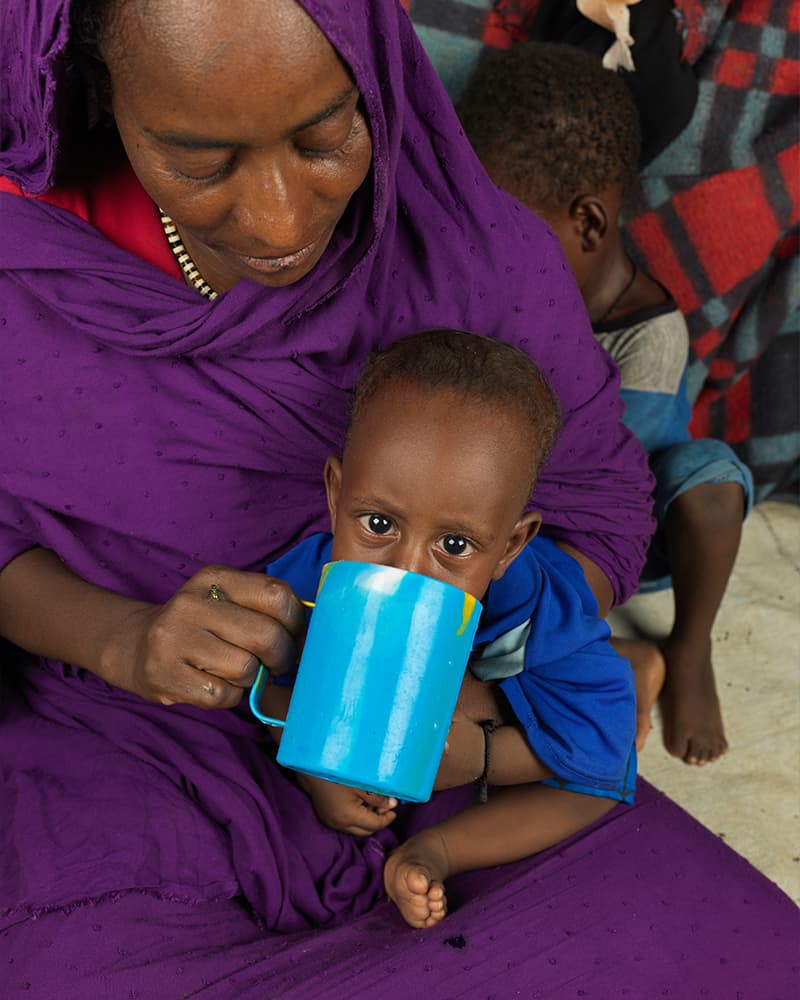
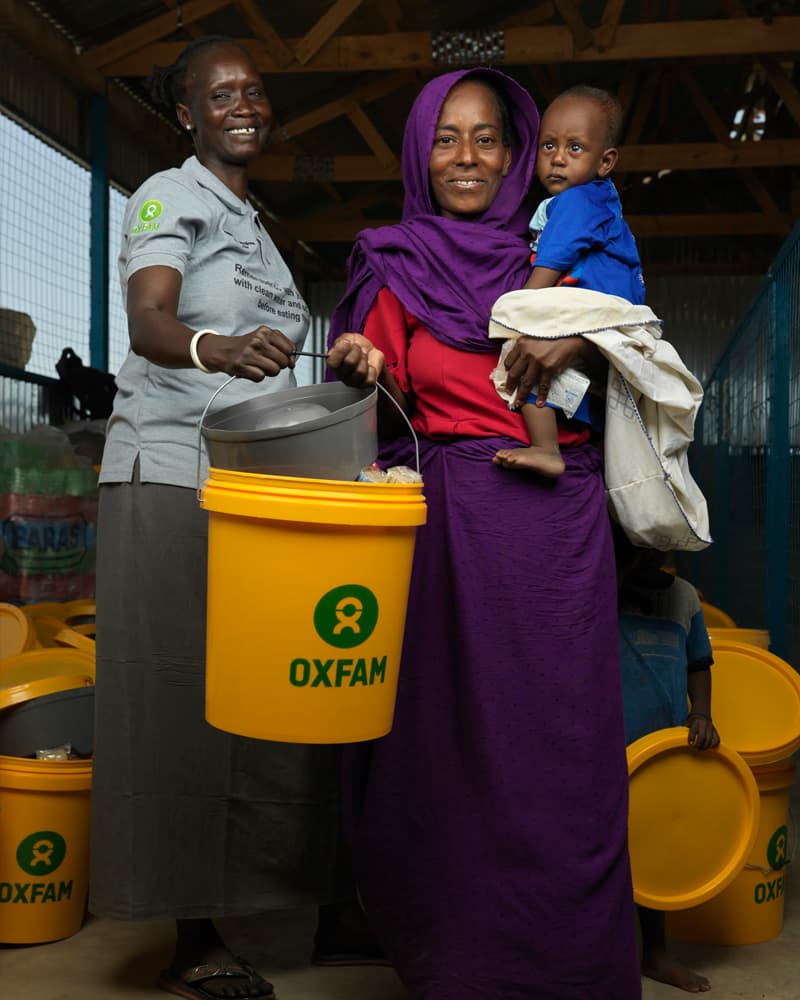
My neighbors in Renk helped settle my mind with songs and stories and told me that my husband would be okay.” In one month’s, time, her husband and eldest son joined her and in her second month at Renk, she delivered her baby at the transit center.
Zainab is very grateful to Oxfam, who has gifted her family items. Oxfam provides clean water and bathroom facilities at the transit center in Renk for all refugees or returnees in waiting.
Oxfam, together with partners, has provided clean water and proper sanitation to over 90,000 people in the transit camps, but urgently needs $7 million to ramp up its operations and reach 400,000 people with lifesaving food, clean water and sanitation.
“I am very happy that Oxfam is helping me. After months, this is the first time I have received any services. I appreciate their help. We had no option but to come here to Renk. We thought the war would only last for a few months, but it is still ongoing.”
For Zainab’s family, the next destination is Maban, South Sudan, where the government is moving those displaced by the conflict. “I hope to go back home at some point and rebuild all we have left, but the war needs to stop,” Zainab says.
The war in Sudan began over one year ago when rival forces, the Sudanese Armed Forces (SAF) and Rapid Support Forces (RSF), clashed following rising tensions linked to a transition to civilian rule. Thousands are fleeing the country daily, seeking refuge from brutal violence, abuse, and limited access to humanitarian aid amid a looming famine.
“Leaving home was very terrible but we had no choice,” says Asia.
Photo: Peter Caton/Oxfam
Asia Ahmed
Asia, fourteen years old, has aspirations to become a doctor someday. "When I’m older, I want to be a doctor and take diseases away from people,” she says. Today, Asia is out of school. All of the schools are closed in Sudan, due to a civil war with no end in sight. As of June 2024, this is her sixth month being refugee at a busy transit center located in Renk, South Sudan.
This is Asia’s story, one that showcases the reality of war and how it affects a young girl.
Asia is from Khartoum, the vibrant capital city of Sudan. In Khartoum, she lived with her mother and younger siblings, with her extended family living nearby. Growing up she had no father figure in her life. Her biological father passed away when she was just a baby. Asia’s mother, Suat, keeps the memory of her father alive for the children. Life in Khartoum was very comfortable for the family.
To fill her days Asia loved to play with her friends or cousins, watch cartoons, and chat with people on the phone. Most of all, Asia enjoyed attending school to learn. “Education is important, I’m teaching myself English. I miss school too much,” says Asia. She continues by singing the English alphabet.
“My daughter has a good heart. I struggled to make sure my daughter got a good education,” expresses Suat, who worked as a cleaner in a school to support Asia.
The Sudan Civil War between two rival factions of the military government broke out on the 15th of April, 2023 in Khartoum. In Asia’s eye, the city that granted her a happy childhood suddenly turned into a nightmare.
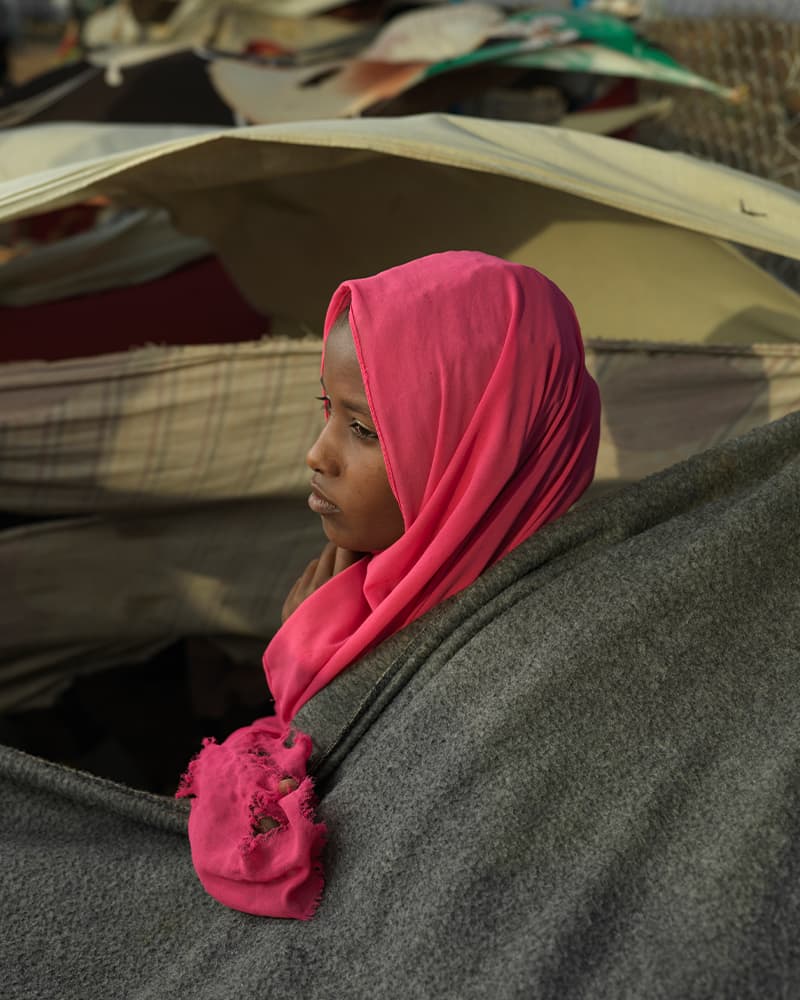
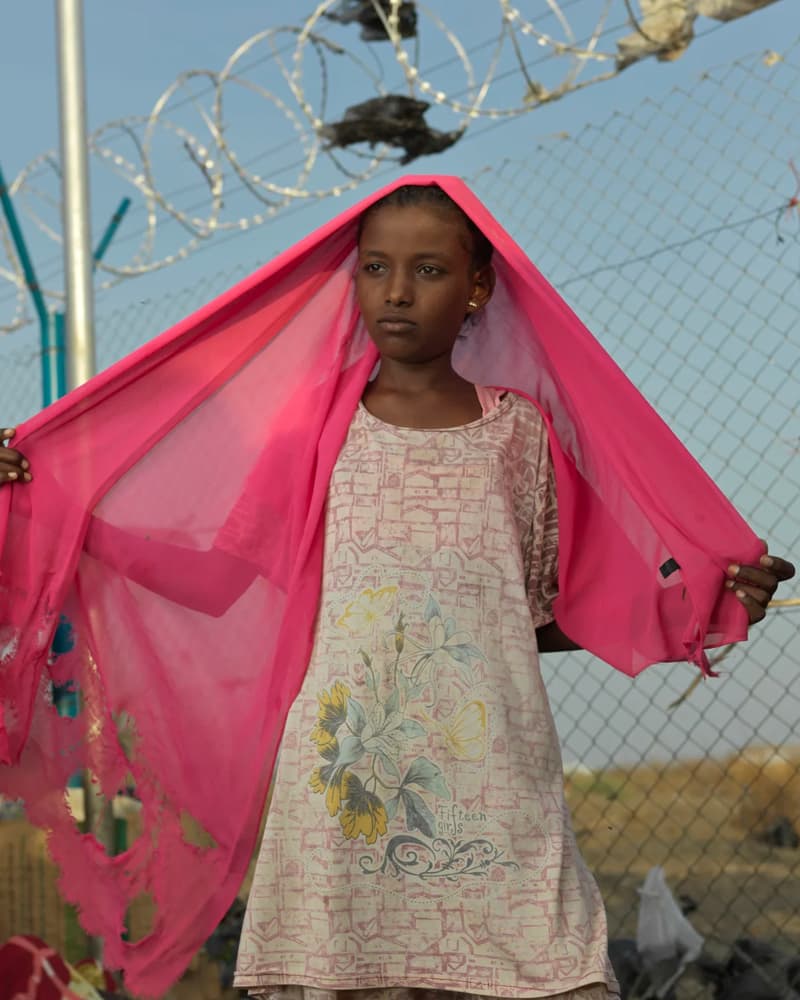
There are no beds, the family sleeps on paper-thin mats on the floor. Sleeping outside on the floor makes Asia and her family susceptible to malaria, snakes, and scorpions. The conditions for them are dangerous, especially with the delayed rainy season approaching.
Days waiting in Renk feel never-ending for Asia. Day after day there is very little to do. Every Tuesday and Thursday, she loves to visit a Women’s Center which is open twice a week. The Women’s Center has helped her gain some inspiration and confidence in herself.
Despite circumstances, Asia feels empowered to serve humanity someday. She holds no bitterness in her heart for the hate crimes she has seen or experienced but only wishes everyone could live as one. If her father could see her now, he would be proud of his resilient daughter.
Oxfam is not operating in Sudan but is currently supporting people fleeing this conflict to neighboring countries including South Sudan and Chad where millions have sought refuge by providing clean water, cash, and food to refugees and returnees in these neighboring countries.
The humanitarian situation in South Sudan remains dire with at least 9.4 million people in urgent need of humanitarian assistance, 7.8 million of them require immediate food aid.
Gallery
Support Hope In An Impossible Situation
Photo: Peter Caton/Oxfam
